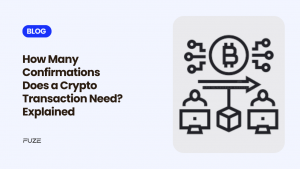As digital assets like cryptocurrencies become increasingly popular, managing them securely has become a top priority for individuals and businesses alike. The choice between custodial and non-custodial wallets plays a crucial role in ensuring secure storage and access. While both options serve the same purpose of holding and transferring digital assets, they differ significantly in terms of control, security, and usability.
This blog dives into the key differences between custodial and non-custodial wallets, their pros and cons, and how to decide which is right for your needs.
What Are Custodial Wallets?
Custodial wallets are managed by third-party services such as exchanges, payment platforms, or financial institutions. In this setup, the provider holds your private keys—the critical codes required to access your digital assets. This means you entrust the security of your assets to the wallet provider.
How Custodial Wallets Work
- Users create an account with a custodial wallet service.
- The provider secures the private keys on behalf of the user.
- Users access their funds through a username, password, or two-factor authentication (2FA).
Advantages of Custodial Wallets
- Ease of Use: Custodial wallets offer a user-friendly experience, making them ideal for beginners. You don’t need to worry about managing private keys.
- Recovery Options: Lost credentials can be recovered by contacting customer support, reducing the risk of permanently losing access to funds.
- Integration with Services: A lot of custodial wallets are integrated with bigger platforms, including exchanges, which offer easy ways to trade and make payments.
Disadvantages of Custodial Wallets
- Lack of Control: You rely entirely on the wallet provider to safeguard your private keys. This centralised control means you don’t have full ownership of your assets.
- Security Risks: Because custodial wallets handle substantial sums of money, hackers find them to be appealing targets. User funds could be compromised via a breach.
- Regulatory Concerns: In accordance with legal regulations, providers may limit transactions or freeze accounts, which could affect user autonomy.
What Are Non-Custodial Wallets?
Non-custodial wallets put users in complete control of their private keys and digital assets. These wallets are typically software or hardware-based and do not rely on third parties to manage your funds.
How Non-Custodial Wallets Work
- Users generate a private key and a recovery phrase during wallet setup.
- The private key is stored locally on the user’s device or hardware wallet.
- Access to the funds depends entirely on the user’s ability to safeguard their credentials.
Advantages of Non-Custodial Wallets
- Full Control: Users maintain sole ownership of their private keys, ensuring true autonomy over their funds.
- Enhanced Security: By eliminating third-party involvement, non-custodial wallets minimise the risk of hacks or account freezes.
- Privacy: Non-custodial wallets typically do not require personal information, enhancing user privacy.
Disadvantages of Non-Custodial Wallets
- Responsibility: Losing your private key or recovery phrase can result in permanent loss of funds. There is no customer support to assist with recovery.
- Steeper Learning Curve: Non-custodial wallets require a greater understanding of how cryptocurrencies work, which may be intimidating for beginners.
- Transaction Fees: Some non-custodial wallets may charge higher fees for processing transactions compared to custodial platforms.
Comparing Custodial and Non-Custodial Wallets
| Feature | Custodial Wallets | Non-Custodial Wallets |
| Control | Managed by third-party providers | Solely controlled by the user |
| Security | Relies on provider’s infrastructure | User is responsible for security |
| Ease of Use | Beginner-friendly | Requires technical understanding |
| Privacy | May require KYC/AML verification | Typically no personal information needed |
| Recovery Options | Support for lost credentials | No recovery support available |
| Vulnerability to Hacks | Higher risk due to centralization | Lower risk but user-dependent |
When to Choose a Custodial Wallet
Custodial wallets are ideal for:
- Beginners: If you’re new to crypto, custodial wallets offer simplicity and ease of access.
- Frequent Traders: Custodial wallets integrated with exchanges make trading and transferring funds seamless.
- Backup-Oriented Users: If you’re worried about losing access, custodial wallets provide customer support for recovery.
When to Choose a Non-Custodial Wallet
Non-custodial wallets are better suited for:
- Experienced Users: If you’re comfortable managing private keys and security, a non-custodial wallet gives you full control.
- Privacy Advocates: For users who value anonymity and independence, non-custodial wallets offer greater privacy.
- Long-Term Holders: If you’re holding crypto as an investment, non-custodial wallets eliminate third-party risks.
Future Trends in Wallet Technology
The evolution of wallet technology is bridging the gap between custodial and non-custodial solutions:
- Hybrid Wallets: Combining the best of both worlds, these wallets provide user control while offering recovery and security features.
- Multi-Signature Wallets: Enhanced security through multiple layers of authorization for transactions.
- Cross-Chain Compatibility: As blockchain networks diversify, wallets are adapting to support multiple chains seamlessly.
- User Education: Wallet providers are simplifying interfaces and offering educational tools to empower users.
How Fuze Simplifies Secure Asset Management
Fuze offers cutting-edge solutions tailored to businesses and individuals navigating the crypto landscape. By integrating seamless payment solutions with robust security, Fuze ensures users have access to both custodial and non-custodial options based on their specific needs.
With Fuze, users gain:
- Easy integration with e-commerce platforms.
- Secure storage and processing with state-of-the-art encryption.
- Support for multiple currencies and global transactions.
Fuze empowers users to take full advantage of cryptocurrency’s potential while providing the tools to manage assets confidently.
Conclusion
Choosing between a custodial and non-custodial wallet comes down to your unique needs and level of experience. Custodial wallets are perfect for convenience and ease, while non-custodial wallets offer unparalleled control and security. As the crypto ecosystem evolves, understanding these differences is crucial for making informed decisions about managing your digital assets.
Disclaimer: Virtual assets carry significant risks, including high volatility and potential loss of your entire investment. They are not backed by governmental protections, and recourse may be limited in case of loss. Always assess your risk tolerance, fully understand the risks, and seek independent financial advice if needed before investing.
Frequently Asked Questions
1. Do custodial wallets offer better customer support than non-custodial wallets?
Yes, custodial wallets typically provide customer support services, which can help resolve issues like account recovery or transaction disputes. Non-custodial wallets usually don’t offer this type of support since users are fully responsible for their keys.
2. Are custodial wallets prone to hacking?
Custodial wallets are susceptible to hacking because the platform holds all users’ private keys. If the platform is compromised, all user assets could be at risk. Non-custodial wallets are not at risk from centralised hacks but require personal responsibility for security.
3. Can I convert cryptocurrencies to fiat currencies easily with custodial wallets?
Yes, custodial wallets typically offer built-in features for converting cryptocurrencies into fiat currencies directly through exchanges or other integrated services. Non-custodial wallets may require the use of external platforms for such conversions.
4. What are the privacy implications of custodial wallets?
Custodial wallets often require KYC (Know Your Customer) and personal information, which may compromise your privacy. Non-custodial wallets, on the other hand, do not require KYC, offering greater privacy for users.
5. Which wallet is better for long-term storage of crypto assets?
Non-custodial wallets are generally better for long-term storage because they offer greater control and security. Custodial wallets are more suitable for active trading but may be less ideal for holding assets over extended periods due to the risk of hacks and reliance on third-party services.







